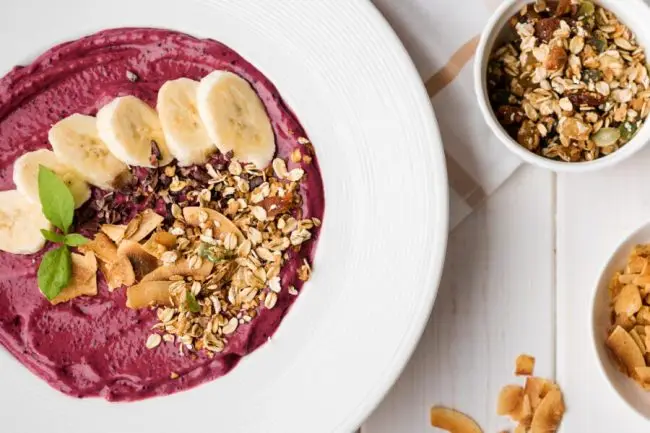Constipation can be an uncomfortable and sometimes distressing condition, affecting people of all ages and lifestyles.
Often characterized by infrequent bowel movements, hard stools, and difficulty passing stools, constipation can significantly impact one’s quality of life. While over-the-counter medications can provide relief, many people seek natural and quick solutions to manage constipation.
In this guide, we’ll explore seven natural remedies that can help alleviate constipation syndrome in as little as 15 minutes, offering practical advice for a more comfortable digestive experience.
Symptoms of Constipation Syndrome
Before diving into remedies, it’s essential to recognize the signs of constipation. Symptoms may include:
- Fewer than three bowel movements per week
- Hard, dry, or lumpy stools
- Straining during bowel movements
- A feeling of incomplete evacuation
- Abdominal discomfort or bloating
Identifying these symptoms early can help in taking timely steps to relieve discomfort.
Increase Fiber Intake
Fiber plays a crucial role in maintaining healthy bowel movements. It adds bulk to the stool, making it easier to pass. There are two types of fiber: soluble and insoluble. Soluble fiber absorbs water and forms a gel-like substance, softening the stool. Insoluble fiber adds bulk to the stool and helps it pass more quickly through the intestines.
Quick Tips:
- Consume High-Fiber Foods: Include fruits like apples and pears, vegetables such as broccoli and carrots, and whole grains like oats and bran in your diet.
- Fiber Supplements: If dietary changes are challenging, fiber supplements like psyllium husk can be an effective alternative.
Keep Hydrated
Adequate water intake is essential for digestion and helps prevent constipation. Dehydration can lead to hard stools, making them difficult to pass. Drinking water regularly helps soften the stool and promotes more regular bowel movements.
Quick Tips:
- Drink Plenty of Water: Aim for at least 8 glasses of water a day, more if you’re physically active or live in a hot climate.
- Incorporate Hydrating Foods: Foods high in water content, such as cucumbers, watermelon, and oranges, can also help maintain hydration.
Regular Exercise
Physical activity stimulates the muscles in your intestines, promoting more regular bowel movements. Regular exercise can help reduce the time it takes for food to move through the large intestine, decreasing the amount of water absorbed from the stool and making it easier to pass.
Quick Tips:
- Daily Walks: Even a 15-30 minute walk can help stimulate bowel activity.
- Incorporate Exercises Like Yoga: Certain yoga poses, such as twists and stretches, can help massage the internal organs and promote digestion.
Incorporate Probiotic Foods
Probiotics are beneficial bacteria that help maintain a healthy gut flora, which is crucial for digestion. Consuming probiotic-rich foods can help regulate bowel movements and prevent constipation by balancing the bacteria in your digestive system.
Quick Tips:
- Include Yogurt and Kefir: These are excellent sources of probiotics. Look for products with live and active cultures.
- Fermented Foods: Sauerkraut, kimchi, and miso are also rich in probiotics.
Herbal Remedies
Certain herbs are known for their laxative properties and can provide relief from constipation. These natural remedies can be a gentle alternative to over-the-counter medications.
Quick Tips:
- Aloe Vera: Known for its soothing properties, aloe vera juice can help ease constipation.
- Senna: A herbal laxative that can stimulate bowel movements. It’s best used short-term and under guidance, as long-term use can lead to dependency.
Mind-Body Techniques
Stress and anxiety can contribute to constipation by affecting the digestive system. Mind-body techniques such as deep breathing, meditation, and gentle yoga can help relax the digestive tract and promote regular bowel movements.
Quick Tips:
- Practice Deep Breathing: Spend a few minutes each day practicing deep breathing exercises to reduce stress.
- Engage in Mindfulness Meditation: This can help you tune into your body’s signals and manage stress levels.
Seeking Medical Advice
While natural remedies can be effective, there are times when professional medical advice is necessary. If constipation persists, is accompanied by severe pain, blood in the stool, or unexplained weight loss, it’s essential to seek medical attention to rule out underlying conditions.
Quick Tips:
- Don’t Ignore Severe Symptoms: Persistent constipation can be a sign of more serious health issues.
- Consult a Healthcare Provider: Especially if natural remedies are ineffective, to explore other treatment options.
Conclusion
Constipation syndrome can be a challenging and uncomfortable condition, but with the right knowledge and tools, relief is within reach.
By incorporating these natural remedies into your daily routine, you can promote healthier digestion and enjoy a more comfortable life.
Remember, consistency is key, and while these methods can provide quick relief, maintaining a healthy lifestyle is crucial for long-term digestive health.
FAQs
How to clear constipation quickly?
To quickly relieve constipation, try drinking a large glass of water, consuming a high-fiber snack like an apple, or engaging in a short, brisk walk. Herbal teas with senna or dandelion can also help stimulate bowel movements.
What is the fastest natural laxative?
Prunes and prune juice are among the fastest natural laxatives due to their high fiber content and sorbitol, a natural sugar alcohol that acts as a laxative.
How to pass a hard stool?
To pass a hard stool, ensure adequate hydration, increase dietary fiber, and consider a natural stool softener like olive oil or magnesium supplements. Gentle physical activity and relaxation techniques can also assist in easing the passage.












